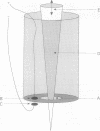Abstract
AIMS--To evaluate the Questor automated bacteriuria and pyuria screening system; to compare its performance with that of a reference method; and to assess its usefulness in a routine clinical laboratory. METHODS--The Questor urine screening system was compared with a comprehensive regimen to detect urinary tract infection, using pour-plate viable counts to determine the numbers of bacteria present in urine samples, a wide range of other cultural methods, microscopic findings and clinical information. RESULTS--The optimal performance in detecting significant growths was a sensitivity of 93%, a specificity of 74%, a positive predictive value of 43% and a negative predictive value of 98%. The list price per test is 0.17 pounds and the capital cost of the system is 39,950 pounds. Questor can test 50 samples an hour and can be operated by one member of the laboratory staff, who is not required to make interpretative judgments--for example, a medical laboratory assistant. CONCLUSIONS--The sensitivity and specificity of the Questor was better than that obtained from other screening systems using the same protocol. The system was easy to use and is a useful addition to the methods available for screening for bacteriuria.
Full text
PDF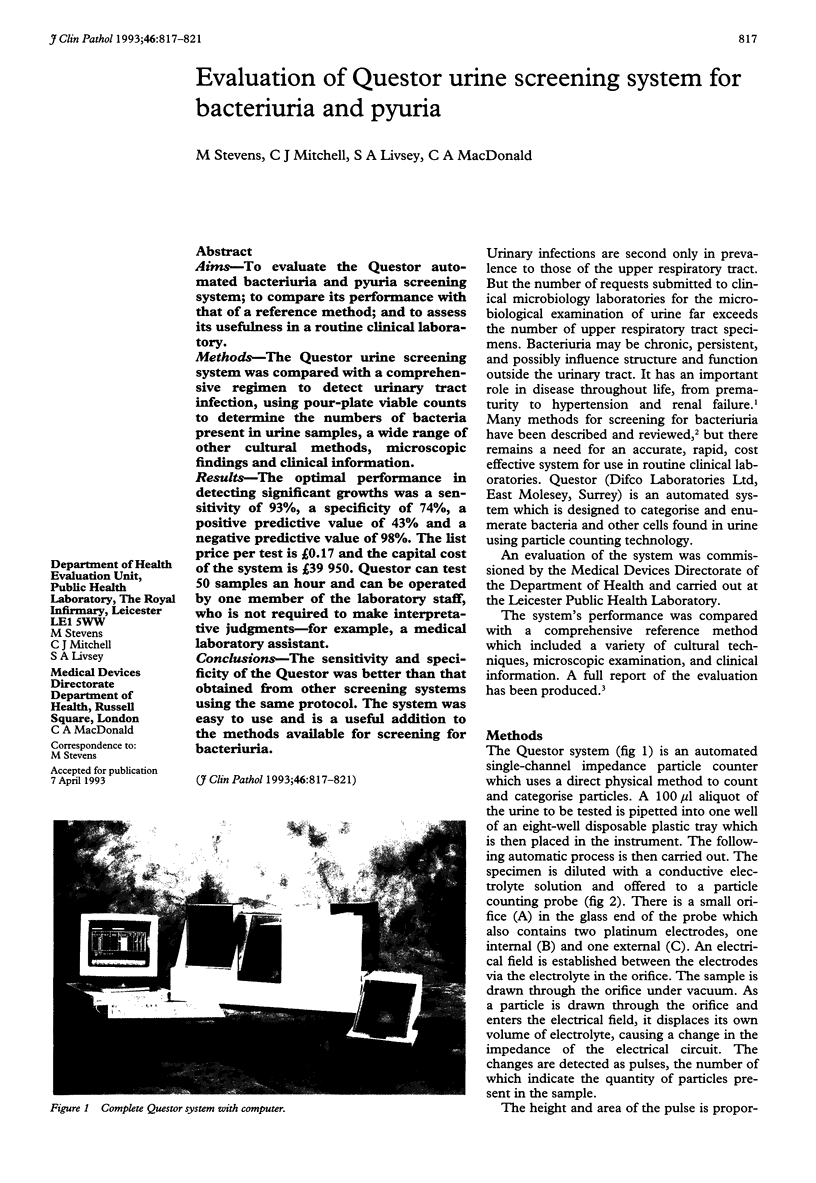
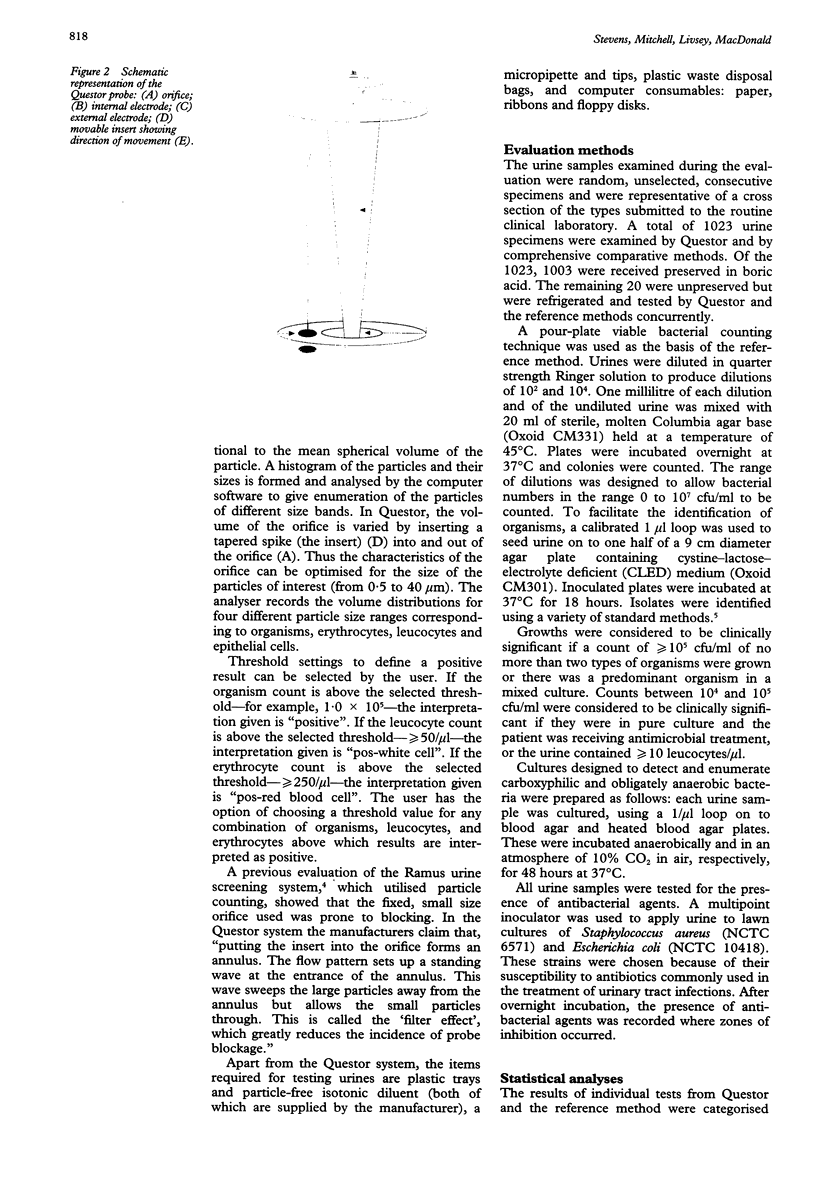
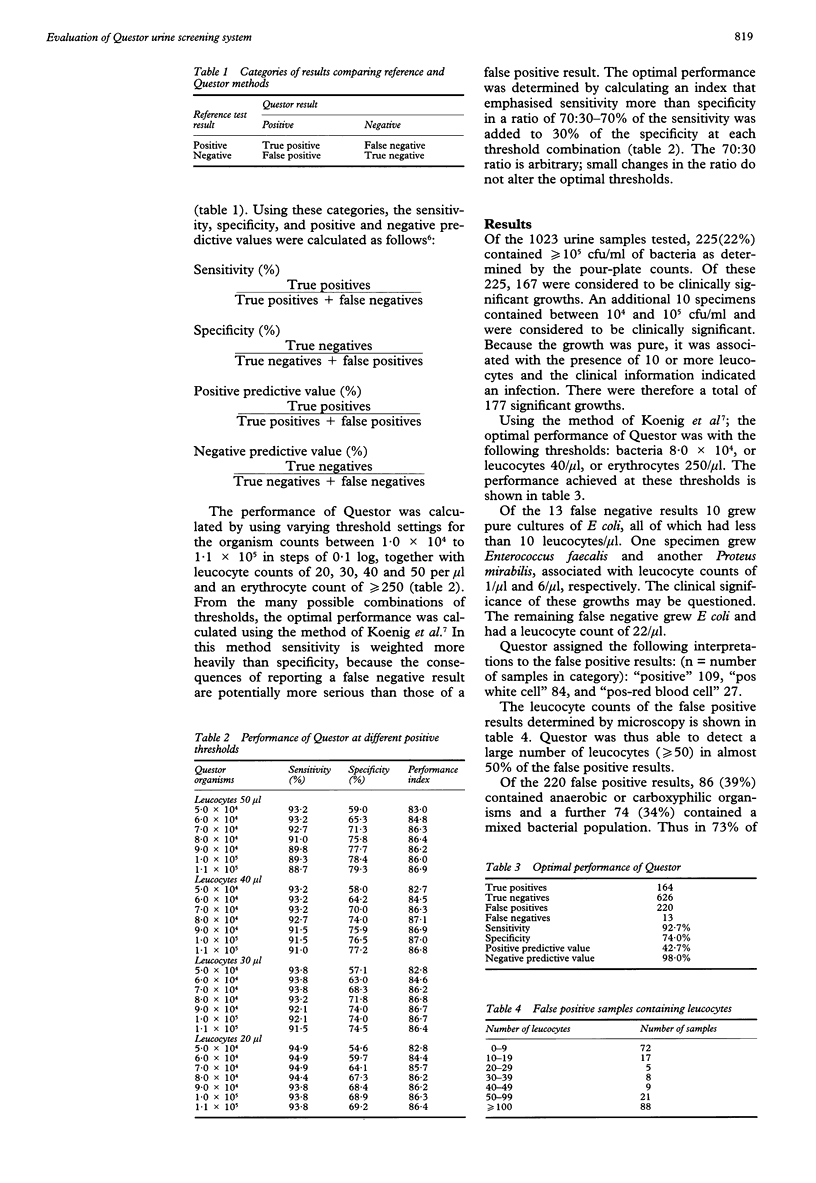
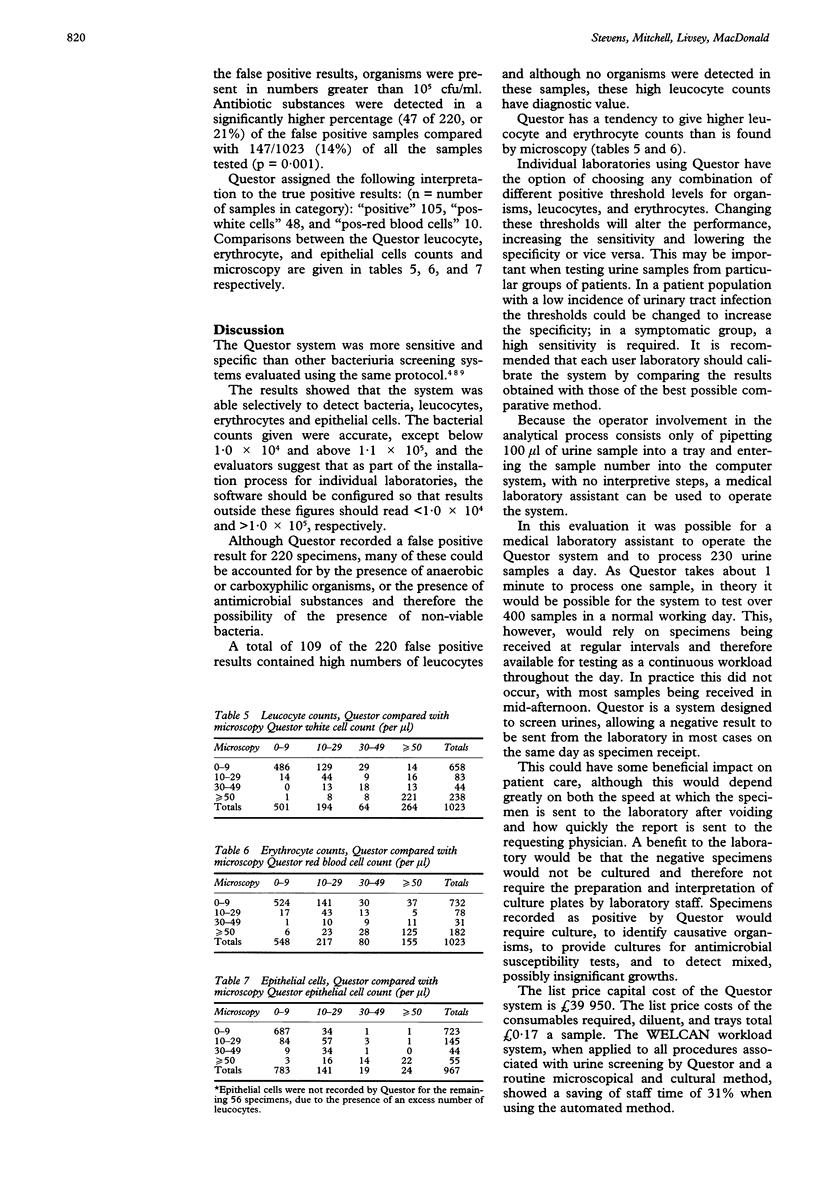
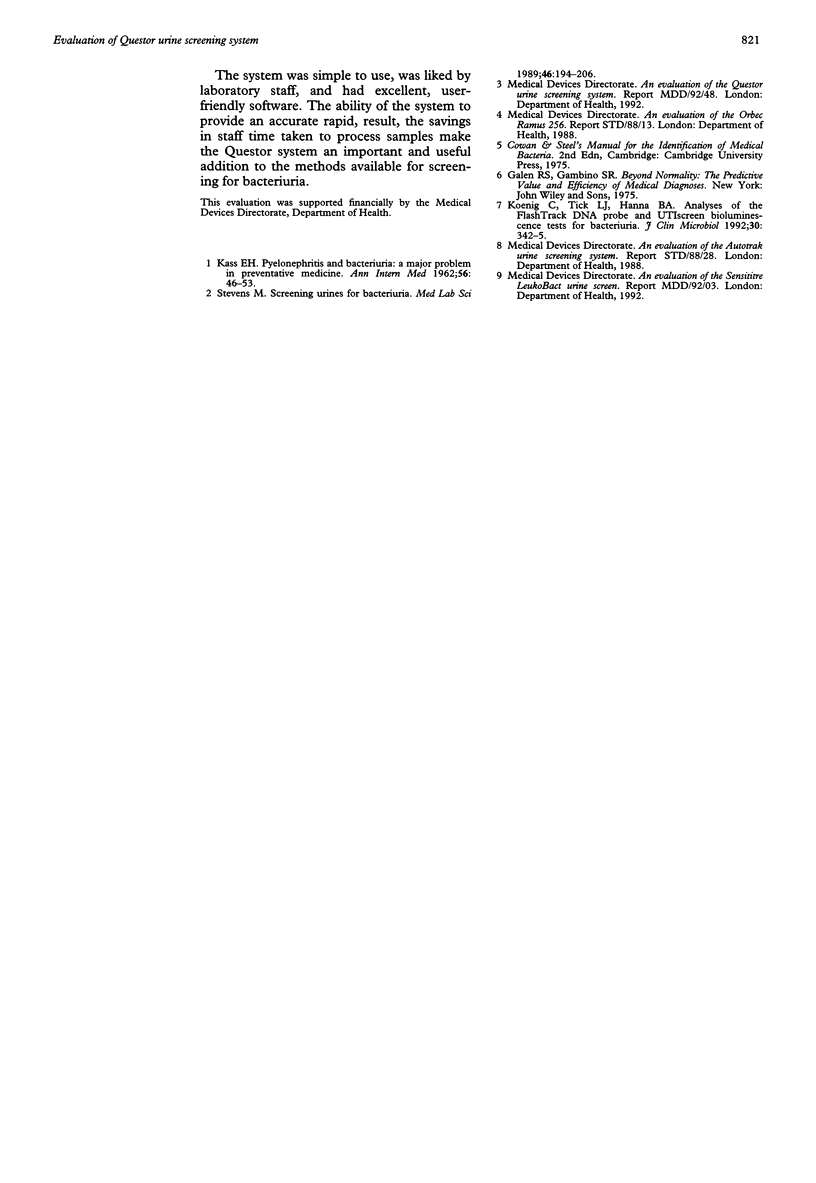
Images in this article
Selected References
These references are in PubMed. This may not be the complete list of references from this article.
- KASS E. H. Pyelonephritis and bacteriuria. A major problem in preventive medicine. Ann Intern Med. 1962 Jan;56:46–53. doi: 10.7326/0003-4819-56-1-46. [DOI] [PubMed] [Google Scholar]
- Koenig C., Tick L. J., Hanna B. A. Analyses of the FlashTrack DNA probe and UTIscreen bioluminescence tests for bacteriuria. J Clin Microbiol. 1992 Feb;30(2):342–345. doi: 10.1128/jcm.30.2.342-345.1992. [DOI] [PMC free article] [PubMed] [Google Scholar]
- Stevens M. Screening urines for bacteriuria. Med Lab Sci. 1989 Jul;46(3):194–206. [PubMed] [Google Scholar]




